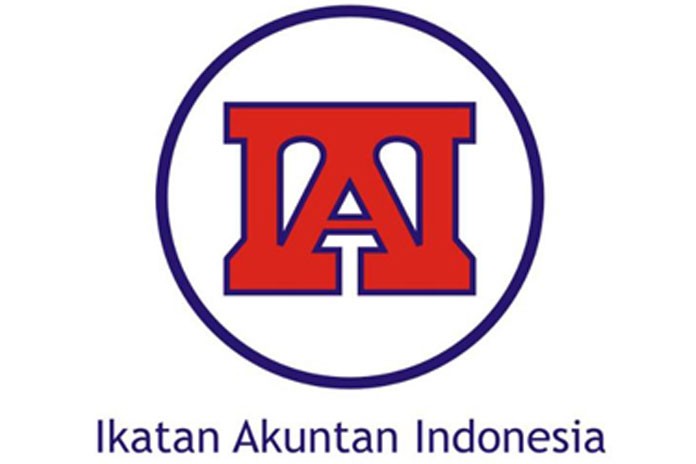Application of Management Accounting System at indonesian Startup Companies
Abstract
This research was conducted on Indonesian startup companies. This study examines the effect of innovation on the management accounting system, the effect of the management accounting system on financial performance and examines the mediating effect of the management accounting system on the effect of innovation on financial performance. This study involved 42 Indonesian startup companies domiciled in Jabodetabek. Questionnaires were distributed to sample companies to obtain the required data and processed using smart PLS 2.0. The results of this study are that there is a significant positive effect of innovation on the management accounting system, there is a significant positive effect of the management accounting system and there is evidence that the management accounting system has a mediating effect that strengthens the influence of innovation on financial performance.
Full Text:
PDFReferences
Abdallah, A.A.J. (2014), “The impact of using accounting information systems on the quality of financial statements submitted to the income and sales tax department in Jordan”, European Scientific Journal, Vol. 9 No. 10, pp. 41-48.
Ali, A., Rahman, M.S.A. and Ismail, W.N.S.W. (2012), “Predicting continuance intention to use accounting information systems among SMEs in terengganu, Malaysia”, International Journal of Economics and Management, Vol. 6 No. 2, pp. 295-320.
Bag, S.,Gupta,S.andTelukdarie,A.(2018),“Importance of innovation and flexibility in configuring supply network sustainability”, Benchmarking: An International Journal, Vol. 25 No. 9, pp. 3951-3985.
Bisbe, J. and Otley, D. (2004), “The effects of the interactive use of management control systems on product innovation”, Accounting, Organizations and Society, Vol. 29 No. 8, pp. 709-737
Bromwich, M. (1990), “The case for strategic management accounting: the role of accounting information for strategy in competitive markets”, Accounting, Organizations and Society, Vol. 15 No. 1, pp. 27-46.
Chenhall, R.H. (2006), “Theorizing contingencies in management control systems research”, Handbooks of Management Accounting Research, Vol. 1, pp. 163-205.Hong, P., Hong, S., Jungbae Roh, J. and Park, K. (2012), “Evolving benchmarking practices: a review for research perspectives”, Benchmarking: An International Journal, Vol. 19 Nos 4/5, pp. 444-462.
Friedman, K. (2016), “Three thousand years of designing business and organizations. Designing Business and Management”, En Designing Business and Management, Bloomsbury Publishing, New York, pp. 67-80.
Goh, S.C., Elliott, C. and Quon, T.K. (2012), “The relationship between learning capability and organizational performance: a meta-analytic examination”, The Learning Organization, Vol. 19 No. 2, pp. 92-108.
Hong, P., Hong, S., Jungbae Roh, J. and Park, K. (2012), “Evolving benchmarking practices: a review for research perspectives”, Benchmarking: An International Journal, Vol. 19 Nos 4/5, pp. 444-462.
Junginger, S. (2015), “Organizational design legacies and service design”, The Design Journal, Vol. 18 No. 2, pp. 209-226, doi: 10.2752/175630615X14212498964277.
Mia, L. and Chenhall, R.H. (1994), “The usefulness of management accounting systems, functional differentiation and managerial effectiveness”, Accounting, Organizations and Society, Vol. 19 No. 1, pp. 1-13.
Mia, L. and Clarke, B. (1999), “Market competition, management accounting systems and business unit performance”, Management Accounting Research, Vol. 10 No. 2, pp. 137-158
Moffett, S., Anderson-Gillespie, K. and McAdam, R. (2008), “Benchmarking and performance measurement: a statistical analysis”, Benchmarking: An International Journal, Vol. 15 No. 4, pp. 368-381
Otley, D.T. (1980), “The contingency theory of management accounting: achievement and prognosis”, Accounting, Organizations and Society, Vol. 5 No. 4, pp. 413-428.
Parnell, J.A. (2011), “Strategic capabilities, competitive strategy, and performance among retailers in Argentina, Peru, and the United States”, Management Decision, Vol. 49 No. 1, pp. 130-155.
Shrotriya, S., Dhir, S. and Sushil. (2018), “Innovation driven ecosystem for quality skill development in India”, Benchmarking: An International Journal, Vol. 25 No. 8, pp. 2997-3020.
Tavitiyaman, P., Qiu Zhang, H. and Qu, H. (2012), “The effect of competitive strategies and organizational structure on hotel performance”, International Journal of Contemporary Hospitality Management, Vol. 24, pp. 140-159.
Thrikawala, S.S. (2011), “Impact of strategic networks for the success of SMEs in Sri Lanka”, World Journal of Sport Sciences, Vol. 1 No. 2, pp. 108-119.
Terziovski, M. (2002), “Achieving performance excellence through an integrated strategy of radical innovation and continuous improvement”, Measuring Business Excellence, Vol. 6 No. 2, pp. 5-14.
Zigan, K. and Zeglat, D. (2010), “Intangible resources in performance measurement systems of the hotel industry”, Facilities, Vol. 28 Nos 13/14, pp. 597-610.
DOI: http://dx.doi.org/10.35448/jrat.v14i2.12708
Refbacks
- There are currently no refbacks.
pISSN 1979-682X eISSN 2528-7443
Jurnal Riset Akuntasi Terpadu (JRAT) is licensed under a Creative Commons Attribution 4.0 International License







